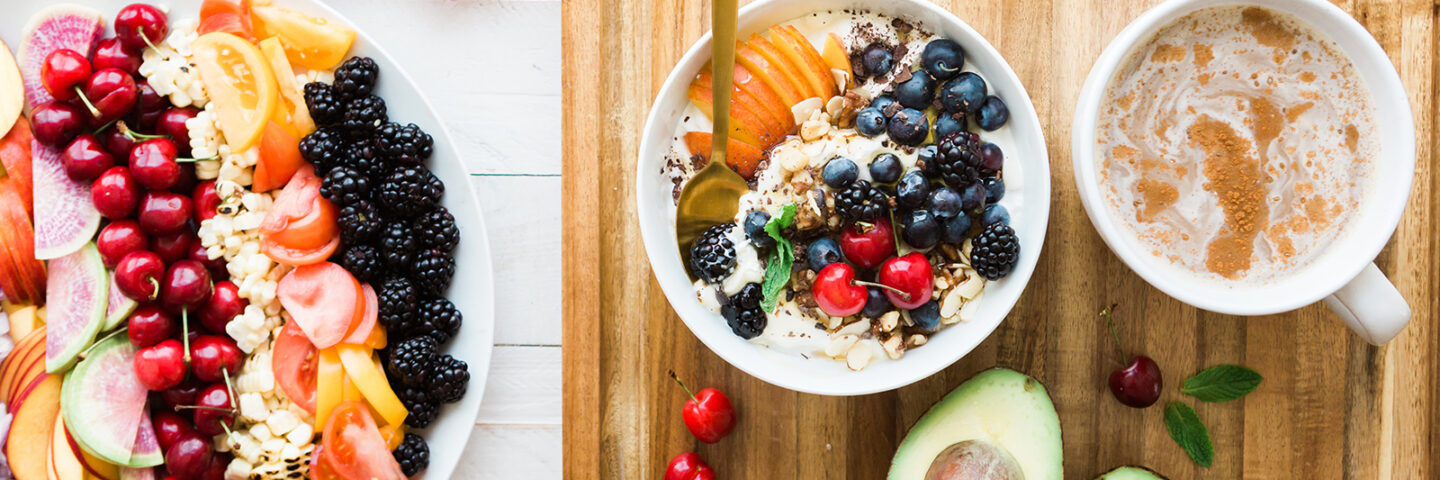
An Interview With Wendy Wood, Ph.D
I recently had the pleasure of speaking with Wendy Wood, the Provost Professor of Psychology and Business at the University of Southern California and author of one of my favorite books, Good Habits – Bad Habits.
Dr. Wood is one of the leading experts on habit formation and during my discussion with her, we spoke about her personal fruit and vegetable (FV) habits and what makes forming FV consumption habits so challenging.
Here are a few highlights (edited for length and clarity):
Jason Riis: What fruit or vegetable habits do you have? Why are they habits and why do they work for you?
Wendy Wood: I try to make fruit and vegetable consumption as simple as possible by reducing friction for both purchase and consumption. I find places where it’s easy to purchase lots of already prepared fruits and vegetables, and I tend to buy them already cooked. It’s a little bit more expensive, obviously, but I’ve learned that I am so much more likely to actually eat them before they go bad in my refrigerator, that it in the end it actually makes economic sense for me.
JR: Do you have any habits specifically designed to increase your FV consumption?
WW: I always only put out pre-cut fruit for breakfast so that if my husband wants something else, he has to get up and get it. If he wants toast and butter, or he wants crumb cake or something, cereal, he has to get it himself, but the fruit is always out. That’s the thing I do to encourage both of us to start off our day right.
I’ve noticed that the more experience my husband gets eating fruit and vegetables, the more he repeats it, and the more he likes it. He’s started to take on the mindset of “Well, this is breakfast”. Over time he has stopped searching for other things to eat. It has actually changed his preferences. He now eats more fruits and vegetables, even when he has a choice. Like when we go out to dinner at a restaurant, he’ll be more likely to choose a salad to start than when I first met him.
JR: It almost sounds like your husband’s habit is sitting down for breakfast and eating what’s in front of him. It always happens to be fruits, but if there were cookies, he would eat those too. It feels a bit different than a FV habit. Is it possible that we don’t really have any (or very many) FV habits, but only FV behaviors that piggyback on some other kind of habit?
WW: There’s good research evidence that when you repeat a behavior enough, most of the time you come to like it more, and you come to view it as normative. So normative, in fact, that if you are presented with making a choice, you are more likely to choose to continue that repeated behavior. I think that means that even if you’re doing something just out of convenience, because it’s structured by your environment (like how I structure my husband’s breakfast), it changes your behavior over time. And most importantly, it changes your preferences, so you continue the behavior even in other settings.
JR: Do you think that there is anything about FV consumption that makes habit formation particularly challenging?
WW: Fruit and vegetables are a difficult habit because they involve multiple steps. You have to buy them; you have to figure out how to prepare them, and you have to figure out how to use them in such a small window of time before they go bad. It’s a whole set of activities that people have to learn and form into habits. It’s very different from cookies and other unhealthy foods that we’re used to buying.
One part of the process that is incredibly habitual is grocery shopping. People go down at the same aisle at their go-to grocery store and they look in the same direction each time. We repeat our behavior so we can get out of there as soon as possible. We’re not deliberating much. Because grocery shopping is so habitual, I think that I presents a great opportunity to disrupt the patterns of people who don’t have FV buying habits.
That being said, I don’t’ think it makes sense to view the world in a dichotomy of this is a habit and this is not. Instead, habits should be viewed on a spectrum- behaviors are can be more or less habitual. Some components of behaviors can be habits, while other components require more thought.
JR: Does a FV habit involve needing to eat a FV generally rather than a specific FV food item?
WW: That’s a great question. What is the level of abstraction at which you define a habit? My guess is it could be that habits start off as very specific behaviors, and then we generalize. For example, I started off with just blueberries and raspberries for breakfast, and then I added watermelon, and then grapes and bananas. And that just sort of developed over time, but it started with a specific fruit, which were berries, and then expanded.
There’s evidence that people generalize, they generalize broader categories as they learn what they like and what they don’t like. So, I think there is a process of generalization at play when you realize you like one vegetable when it’s cooked a certain way and so you are willing to try a few new ones too.
*This interview has been edited for length and clarity.


